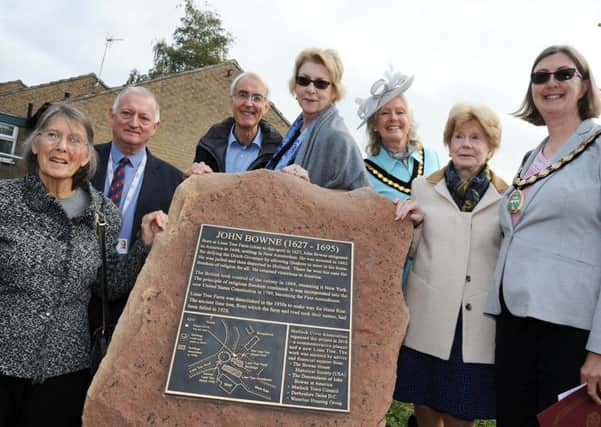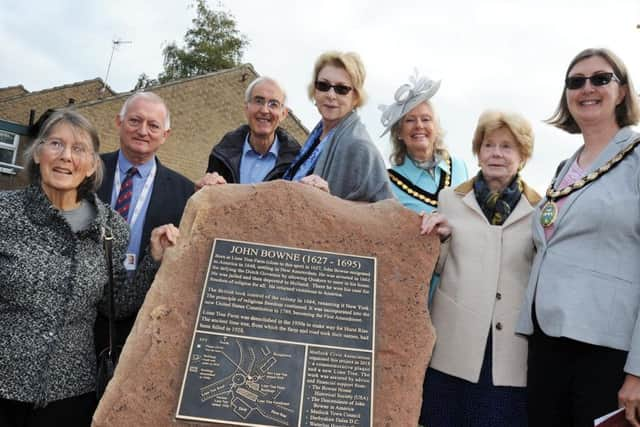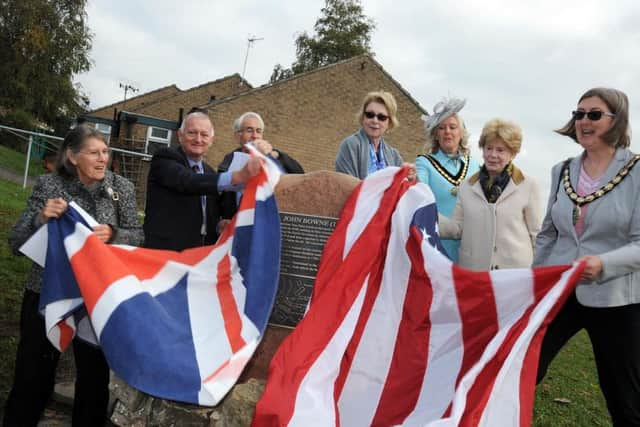Monument unveiled at Matlock birthplace of Quaker who made US history


Matlock Civic Association has installed a bronze plaque on a local gritstone plinth at the junction of Hurst Rise and Lime Tree Road to mark the birthplace of John Bowne.
Born in 1627, Bowne emigrated to New Amsterdam as an adult—now New York—but was later arrested for hosting Quaker meetings in his house.
Advertisement
Hide AdAdvertisement
Hide AdJailed and deported, in 1662 Bowne won his freedom after pleading his case with Dutch authorities, as well as the right to return, and a legal precedent for religious tolerance which was enshrined in the US constitution in 1791.


Civic association chairman Tony Symes said: “We are delighted with this unique partnership project which commemorates a Matlock man who changed the history of the United States.”
The association worked on the memorial with the historical society which still maintains John Bowne’s house, in Flushing, Queens, one of the oldest structures in the city.
Society vice president Rosemary Vietor, a descendant of Bowne, said: “We in America are grateful for the courage of John Bowne, whose actions secured our freedom of religion, right of assembly and freedom of speech.”
Advertisement
Hide AdAdvertisement
Hide AdBowne’s childhood home, Lime Tree Farm, was named after a tree which stood at the site for more than 300 years until it was cut down in 1928, making way for what would become the post-war Hurst Farm housing development.


A new lime tree was planted alongside the monument at the ceremony on Saturday, October 20, attended by three visitors from New York, local Quakers, town and district council representatives.
Christine Shaller, also a descendant of John Bowne, presented a letter and certificate of recognition from Flushing Quakers to those in Matlock.
Quaker Judith Green said: “Bowne was a powerful example justice, peace and equality. It is good to remember these principles as well as the man.”
Advertisement
Hide AdAdvertisement
Hide AdThe costs of the project were split between the civic association, historical society, and the two councils and it will now be maintained by Waterloo Housing.
Ken Parker, project manager for the civic association, said: “Researching and organising this project has been a memorable experience.”